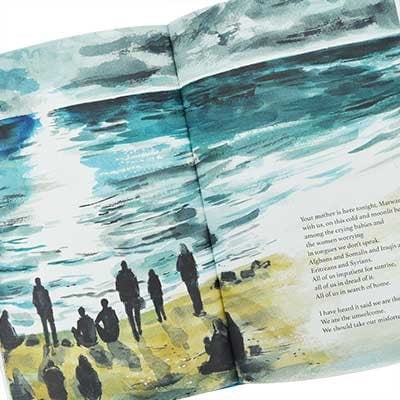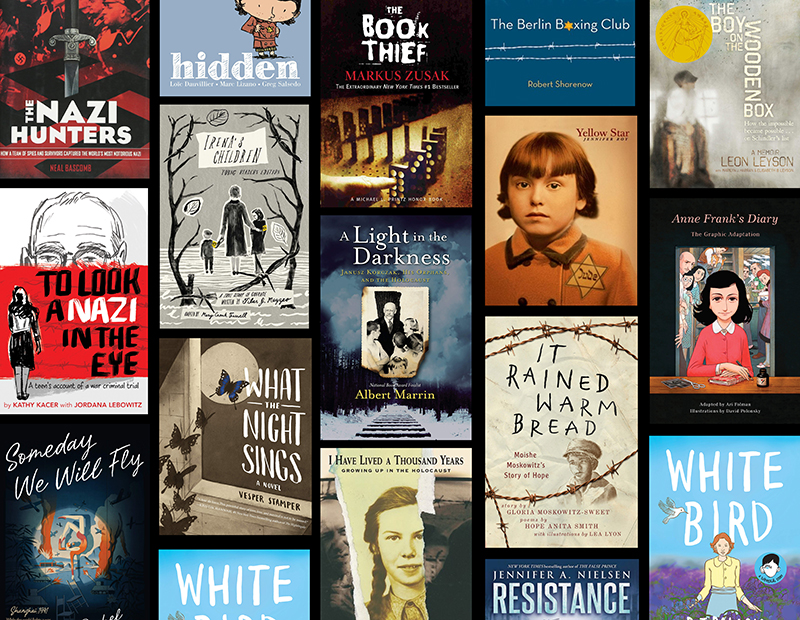
I am so excited for Classcraft’s new feature that allows teachers to build quests for their students. Classcraft states, “Quests enable teachers to turn their lesson plans into personalized, self-paced learning adventures for students to embark upon in the game. Your entire curriculum can take the form of an interactive map — each point representing an activity or resource that must be completed to go further.”
I have just put together a reading quest based on a social justice book unit. Students have a choice to read I am Malala, All American Boys, or Warriors Don’t Cry. Since students are reading books in small groups, the quest feature allows all students to work at their own pace to complete different “checks for understanding” assignments that will highlight their thinking about the text.
Here is a breakdown of the Social Justice Quest:
The Story – Throughout history there have been moments when people have been called upon to stand up for what is right. They have witnessed injustice, hatred, intolerance, and have decided that they cannot stand aside as a bystander. Who are these upstanders and how do they change the course of history for all of humanity.
Mission 1 – Perception Reading Expedition
You have read the backstory, been introduced to the characters, and seen injustice presented in the text. Now, complete this mission to unlock the journey of a true hero.
Answer the questions on the google form related to your social justice book.
Warriors Don’t Cry https://goo.gl/forms/X5HoTnSFU29nl2S92
I Am Malala https://goo.gl/forms/Pc6S1uFiAs9zmo1Z2
These Google forms include 20 basic comprehension questions based on the first 100 pages of the books. Student responses will be assessed using the Google Add-On Flubaroo.
Mission 2 – Alliances
We often look to models and mentors for wisdom. These people’s lives are a testament that being an upstander takes strength and perseverance.
What aspects of Mahatma Gandhi are a model and mentor for your main character?
Articulate how your main character best exemplifies the philosophies and practices of Gandhi.
To learn more about Gandhi’s beliefs and complete this task click here.
Again, students will write a short response for this task on Google Forms which will be evaluated by the teacher.
Mission 3 – Evaluator Mission
When we get to the end of a story our mind is filled with questions, thoughts, connections, and reflections.
- What surprised me? What did I wonder?
- What did the author think I already know?
- What changed, challenged, or confirmed my thinking?
Before you make it to the end of the Social Justice Vision Quest, you must complete the Evaluator One Pager Mission.
One Pager Task: Your task is to showcase your understanding of your social justice book in ONE PAGE. Please follow the guidelines and check off each box as you complete each step.
- Use a sheet of blank, white computer paper(8 ½ X 11).
- Make sure the title of the novel is located on your one-pager. The title should STAND OUT.
- Include a graphic representation on the part of the book you are focusing on (drawing, magazine picture, computer graphic, a symbol)
- Your one-pager must include color (markers, colored pencils). No pencil is allowed.
- Answer three (3) questions (see below) regarding the book and include two or more textual quotes to support your response.
- Personal Response: A comment, an interpretation, a connection, or a review. Please do not include a summary.
- Fill up the entire page
- Place your name in the lower right hand corner.
| One-Pager Scoring Rubric |
Points |
| Answers three reflection questions with specific textual quotes to support response. |
10 |
|
Graphic Representation that ties to the quotes. |
5
+5 Awarded for Original & Unique Artwork |
| Thoughtful, well-written response |
10 |
| Title clearly stated… stands out |
5 |
| Presentation: Fill page, uses color, no pencil. |
3 |
| Name in lower right corner |
2 |
| Total (40 Points Maximum) |
|
|
All American Boys – One Pager Questions
- Describe Rashad and Quinn. What makes them dynamic characters?
- What is your impression of Spoony, Rashad’s brother? Do you find him to be a good brother to Rashad? In what ways are these two brothers similar? How are they different?
- Quinn states, “On Friday nights, there were only two things on my mind: getting the hell out of the house and finding the party.” Why do his responsibilities at home make him feel such a need to escape? In what ways has the absence/loss of his father impacted how the family functions? Are they in any way similar to your own? If so, in what ways?
- For what reasons do you think Quinn begins to feel connected to Jill? How would you characterize their relationship, and how does it change over the course of the novel?
- Guzzo states, “People have it all backward. They do . . . I’m sorry, but my brother did the right thing. He has to make tough calls.” When his brother attacks Rashad, Guzzo is around the corner from the store, so he doesn’t bear witness to the assault. Why is Guzzo unable to come to terms with the truth about his brother’s actions?
- Consider the variety of settings for All American Boys; name the three places you believe to be most important to the story.
- Jill tells Quinn, “I don’t think most people think they’re racist. But every time something like this happens, you could, like you said, say, ‘not my problem.’ You could say, ‘it’s a one-time thing.’ Every time it happened.” Do you agree with her assessment?
- Quinn states, “And if I don’t do something. If I just stay silent, it’s just like saying it’s not my problem.” How does this moment show that Quinn is actively choosing not to be a bystander? Though difficult, do you agree it’s the right decision?
- How does the discovery of the spray-painted tag, “Rashad Is Absent Again Today” change the dynamics about how students at the high school are able to deal with the event? In what ways does this initially non-spoken symbol become an avenue for reflection and conversation among both the student body and the faculty?
- All American Boys is told in a dual first-person narrative. How would the story be different if someone besides Rashad and Quinn were telling it? Do you think changing the point of view would make the story better or worse? If you could, would you want another character’s perspective to be included in the novel? If so, whose?
|
|
Warriors Don’t Cry – One Pager Questions
1. What are 2-3 ways different white students respond to integration at Central High?
2. What role does peer pressure play in how white students respond to African American students?
3. Melba says she feels both proud and sad when she is escorted into school by federal troops. What do these feelings say about who she thinks she is – as a citizen and as an individual?
4 What role does Grandma India play? Why is she an important to Melba? Provide at least three (3) well substantiated reasons to support your assertion.
5. Explore the role Link plays. Why is he important in the book? Provide at least three (3) well substantiated reasons to support your assertion.
6. Why is the book called Warriors Don’t Cry? Which character or characters is/are the “warriors” in this play? Explain providing at least three examples.
7. How does Melba change as the story progresses? Be sure to clearly state your thesis and explain fully the instances where her behavior or attitudes change.
8. Based upon your reading of this book, what role do you think religion played in the Civil Rights Movement?
9. In the context of Melba’s story, what does it mean to be a warrior? What qualities does a warrior in this story need to possess? Provide at least two direct quotes from the book to help explain your answer.
10. Melba’s experience at Central High School happened more than fifty years ago. Why is it important to discuss it now? What could happen if Americans don’t learn about the struggle of the Little Rock Nine? |
|
I Am Malala – One Pager Questions
1. Would you have had the bravery that Malala exhibited and continues to exhibit?
2. Talk about the role of Malala’s parents, especially her father, Ziauddin. If you were her parents, would you have encouraged her to write and speak out?
3. How does Malala describe the impact growing Taliban presence in her region? Talk about the rules they imposed on the citizens in the Swat valley. What was life like?
4. Mala has said that despite the Taliban’s restrictions against girls/women, she remains a proud believer. Would you—could you—maintain your faith given those same restrictions?
5. Talk about the reaction of the international community after Malala’s shooting. Has the outrage made a difference…has it had any effect?
6. What can be done about female education in the Middle East and places like Pakistan? What are the prospects? Can one girl, despite her worldwide fame, make a difference? Why does the Taliban want to prevent girls from acquiring an education—how do they see the female role? *
7. Talk about the Taliban’s power in the Muslim world. Why do you think it continues to grow and attract followers…or is it gaining new followers? What attraction does it have for Muslim men? Can it ever be defeated?
8. Malala witnesses her immediate surroundings change dramatically within a short time period. Describe the changes to both Pakistan and Swat throughout I AM MALALA. How does Malala experience and respond to these changes? How is Malala’s character influenced and shaped by her surroundings?
9. Discuss Malala’s relationship with her mother. What influence does she have on Malala? In what ways does Malala’s relationship with her mother compare/contrast with her relationship with her father? Did it surprise you to learn that Malala’s mother did not know how to read yet her father insisted that Malala be well educated and learn all that she can?
10. In Chapter 5, after Malala does not win the class trophy at the end of the school year, her father tells her “It’s a good thing to come in second because you learn that if you can win, you can lose. And you should learn to be a good loser not just a good winner.” What do you think about this advice? How do you think it builds Malala’s character?
11. Would you have been as brave as Malala at this point in the story? In what ways do you feel like you relate to Malala? |
Mission Complete – Reading Ace
Social justice means moving towards a society where all hungry are fed, all sick are cared for, the environment is treasured, and we treat each other with love and compassion. Not an easy goal, for sure, but certainly one worth giving our lives for!
– Medea Benjamin, co-founder Global Exchange and Code Pink
We know that within our world and throughout history that not everyone has had equal opportunities or access to resources that should be a given right. Books have the power to help us see the world for what it can be and stand up for what is right. You are a reading ace and now you must make choices that show what you have taken to heart from the stories you read.























